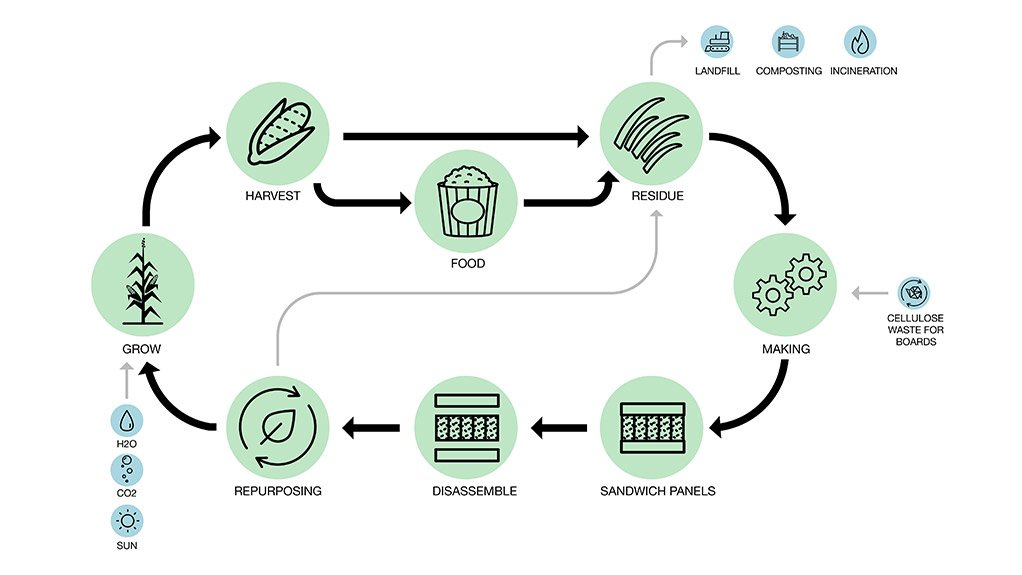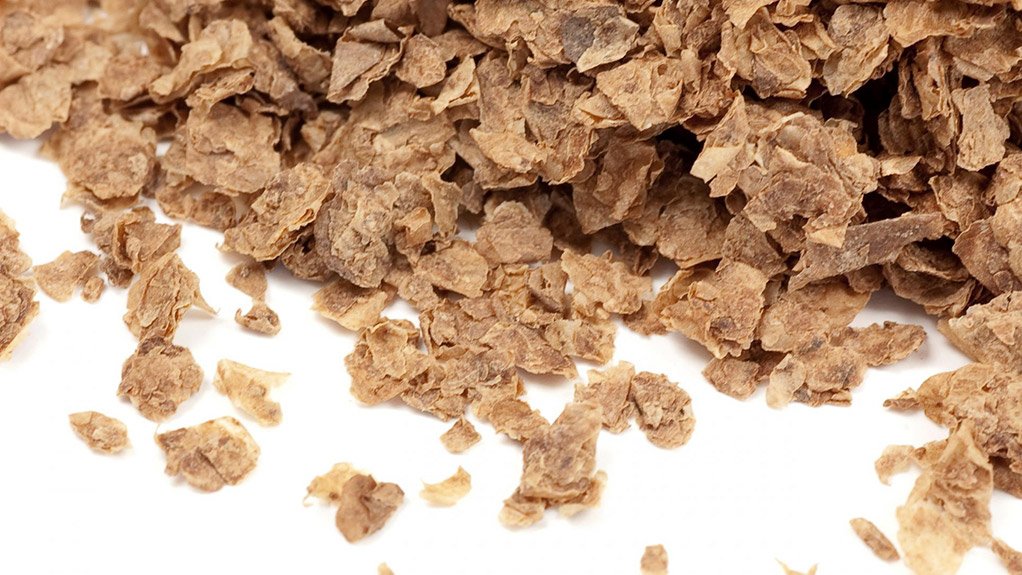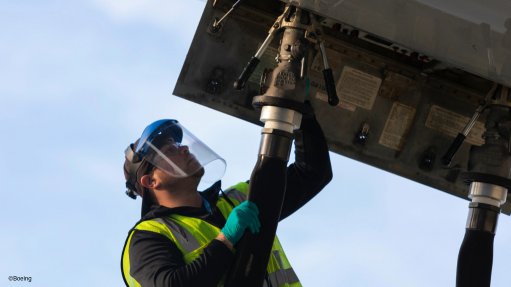Organic Waste Could Provide The Building Materials Of The Future, Arup Report Shows
This article has been supplied as a media statement and is not written by Creamer Media. It may be available only for a limited time on this website.
Cities could tackle the global problem of rising levels of waste and depleted resources by using organic waste, such as bananas, potatoes and maize as building materials, Arup predicts.
Globally the construction industry is one of the largest users of raw materials; in the UK alone it accounts for 60% of all raw materials consumed*. Capturing organic waste streams from cities and the countryside could provide the industry with lower-cost, lower-CO2 building materials such as bricks, insulation and partition boards. The report envisages a completely circular system with building waste fed back into the biological cycle at the end of its service life with nutrients returned to the soil.
The potential for the bio-economy is huge. Over 40 million tonnes of dried organic waste from agriculture and forestry was produced in Europe in 2014 alone and the amount is growing year on year.** A kilogram of waste incinerated for energy recovery has a value of approximately 0.85 Euros but the same material used for interior cladding could sell for up to six Euros per kilogram.
The report also points to advances in the development of alternative organic materials, including mushroom bricks grown in five days and waste potatoes used as insulation and acoustic absorbers. Arup has created the SolarLeaf, the first façade system in the world cultivating micro-algae to generate heat and biomass and BioBuild, the first self-supporting façade panel made out of bio-composite materials.
Innovative manufacturing processes are a significant enabler, with 3D printing of bio-polymers becoming increasingly widespread.
The report highlights the following organic matter products already available:
- Peanuts: shells are being used to produce low-cost materials, such as partition boards that are resistant to moisture and flame retardant.
- Rice: rice husk ash can be mixed with cement to reduce the need for fillers. Rice can also be used as a raw material for the production of boards.
- Banana: banana fruit and leaves are being used to make rugged textiles. Bananas contain high strength fibre and have good acoustic absorption and durability.
- Potato: the peel from potatoes can be cleaned, pressed and dried to create a low-weight, fire resistant, water repellent, insulating material and acoustic absorber.
Guglielmo Carra, European Lead for Materials Consulting at Arup, said: “As one of the world’s largest users of resources we need to move away from our ‘take, use, dispose’ mentality. There are already pockets of activity, with some producers making lower-CO2 building products from organic materials. What we need now is for the industry to come together to scale up this activity so that it enters the mainstream.
An important first step is to work with government to rethink construction codes and regulations to consider waste as a resource, opening up the opportunity to repurpose it on an industrial-scale.”
The report, The Urban Bio-Loop: Growing, Making and Regenerating is available to download.
Arup is working on opportunities to embed circular economy principles in the built environment, working alongside the Ellen McArthur Foundation as a Knowledge Partner. In 2016, Arup installed the Circular Building, a building designed and constructed out of fully re-usable components to demonstrate how circular economy thinking can be applied to the built environment.
About Arup
Arup is the creative force at the heart of many of the world’s most prominent projects in the built environment and across industry. With over 80 offices in 35 countries, Arup has more than 13,000 planners, designers, engineers and consultants delivering innovative projects across the world with creativity and passion.
We have worked on more than 20,000 projects and developments in Africa; offering clients multidisciplinary engineering, planning, project management, transaction advice and sustainability consulting services.
For more information, go to www.arup.com
Comments
Press Office
Announcements
What's On
Subscribe to improve your user experience...
Option 1 (equivalent of R125 a month):
Receive a weekly copy of Creamer Media's Engineering News & Mining Weekly magazine
(print copy for those in South Africa and e-magazine for those outside of South Africa)
Receive daily email newsletters
Access to full search results
Access archive of magazine back copies
Access to Projects in Progress
Access to ONE Research Report of your choice in PDF format
Option 2 (equivalent of R375 a month):
All benefits from Option 1
PLUS
Access to Creamer Media's Research Channel Africa for ALL Research Reports, in PDF format, on various industrial and mining sectors
including Electricity; Water; Energy Transition; Hydrogen; Roads, Rail and Ports; Coal; Gold; Platinum; Battery Metals; etc.
Already a subscriber?
Forgotten your password?
Receive weekly copy of Creamer Media's Engineering News & Mining Weekly magazine (print copy for those in South Africa and e-magazine for those outside of South Africa)
➕
Recieve daily email newsletters
➕
Access to full search results
➕
Access archive of magazine back copies
➕
Access to Projects in Progress
➕
Access to ONE Research Report of your choice in PDF format
RESEARCH CHANNEL AFRICA
R4500 (equivalent of R375 a month)
SUBSCRIBEAll benefits from Option 1
➕
Access to Creamer Media's Research Channel Africa for ALL Research Reports on various industrial and mining sectors, in PDF format, including on:
Electricity
➕
Water
➕
Energy Transition
➕
Hydrogen
➕
Roads, Rail and Ports
➕
Coal
➕
Gold
➕
Platinum
➕
Battery Metals
➕
etc.
Receive all benefits from Option 1 or Option 2 delivered to numerous people at your company
➕
Multiple User names and Passwords for simultaneous log-ins
➕
Intranet integration access to all in your organisation






















